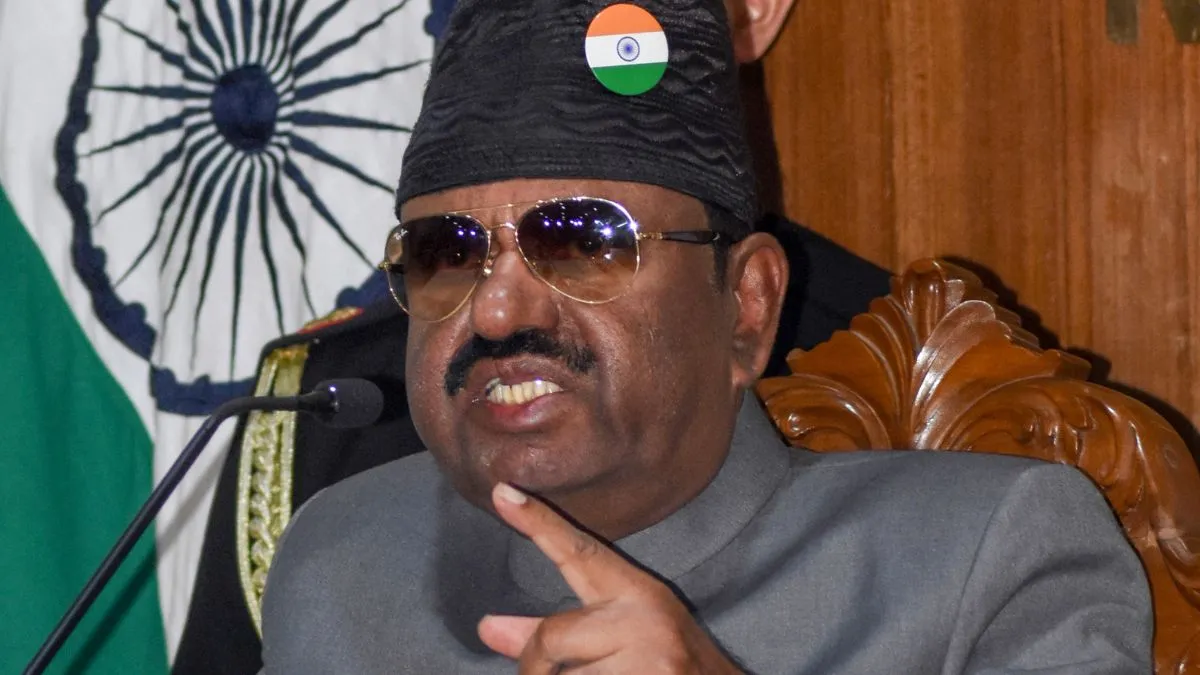- By Vivek Raj
- Mon, 06 May 2024 09:06 AM (IST)
- Source:JND
West Bengal's Trinamool Congress government has leveled accusations of sexual harassment against Governor CV Ananda Bose, a claim vehemently denied by him. The accusation has sparked a direct conflict between the TMC and the Governor's office, escalating political tensions in the state.
The complaint against Governor Bose stems from allegations made by a woman employee of Raj Bhavan, who resides in the residential quarters at the Governor's House. She alleges that Bose "inappropriately touched" her on multiple occasions, prompting her to approach the police stationed within the Governor's House.
According to her complaint, she was subjected to unwanted advances twice, with the Governor allegedly calling her to his office and attempting to touch her against her will. Deputy Commissioner of Central Division, Indira Mukherjee, confirmed the receipt of the complaint and stated that an inquiry is underway. The TMC has condemned the alleged misconduct, asserting that it tarnishes the sanctity of Raj Bhavan, which serves as a symbol of constitutional integrity.
ALSO READ: Congress Blames Smriti Irani, BJP After Vehicles Vandalised Outside Amethi Office; Probe On
“On 19 April, Governor asked me to take some time out and meet him with my CV”. On second occasion, “On 24 April, around 12.45 pm, he called me to his office room and after some discussion touched me. I somehow managed to leave the office room. He called me once again today, on May 2. I took my supervisor along with me to the conference room because I was scared. After talking for a while about work, he asked the supervisor to leave. He prolonged the conversation by talking about my promotion. He said he will call me at night and asked me not to tell anyone. When I refused, he tried to touch me. I protested and left,” the complaint read.
In response to the allegations, Governor Bose has banned police access to Raj Bhavan, citing unauthorised and politically motivated investigations. Raj Bhavan highlighted that the Governor enjoys immunity under Article 361 of the Constitution, which shields the President and Governors from legal proceedings during their tenure.
What is Article 361 and How Does it Give Immunity to Governor
Article 361 of the Indian Constitution provides immunity to the President and Governors from legal proceedings during their term in office. It states that they shall not be answerable to any court for the exercise of their powers and duties.
The provision further states that no criminal proceedings shall be initiated against the President or Governor during their term, and no arrest or imprisonment process shall be issued against them.
In the landmark 2006 ruling in Rameshwar Prasad v Union of India, the Supreme Court affirmed the Governor's immunity, stating that “the position in law is that the Governor enjoys complete immunity”, even on “allegations of personal malafides”.
“Governor is not answerable to any court for the exercise and performance of the powers and duties of his office or for any act done or purporting to be done by him in the exercise and performance of those powers and duties,” the top court said.
Several instances in the past have showcased the application of Article 361 to shield Governors from legal action. Former Uttar Pradesh Chief Minister Kalyan Singh, serving as Governor of Rajasthan during the Babri Masjid demolition trial, was granted immunity until the end of his gubernatorial term.
